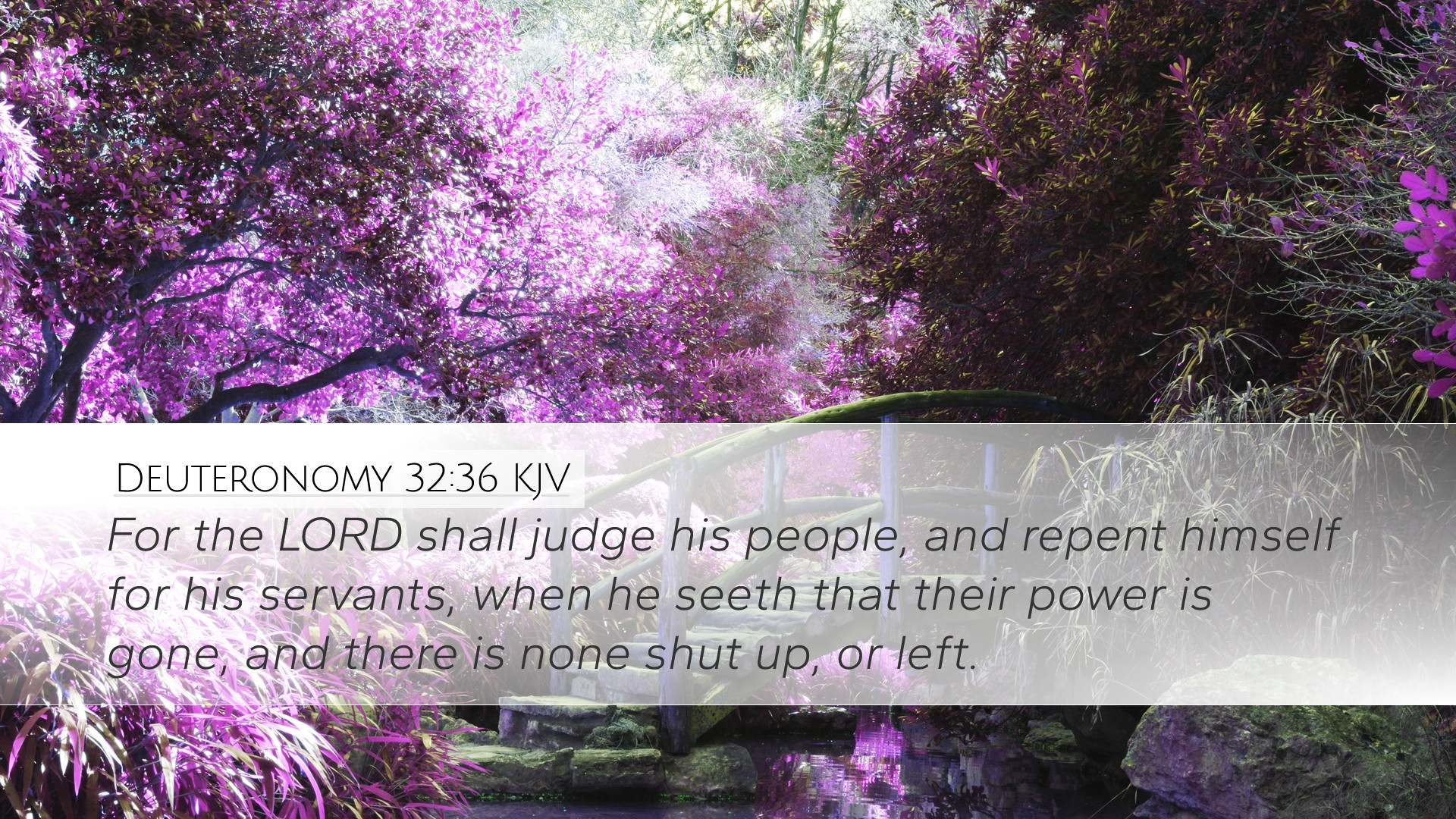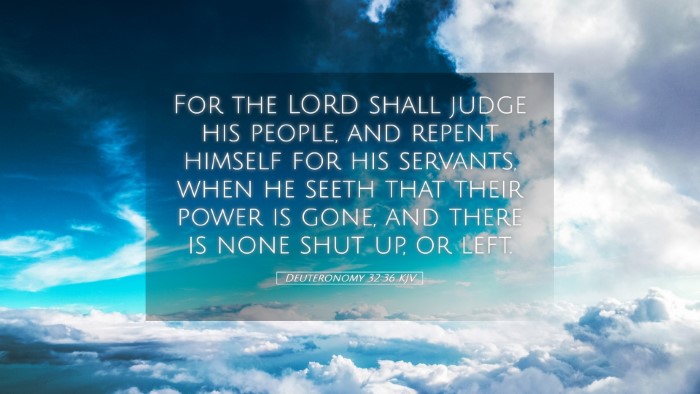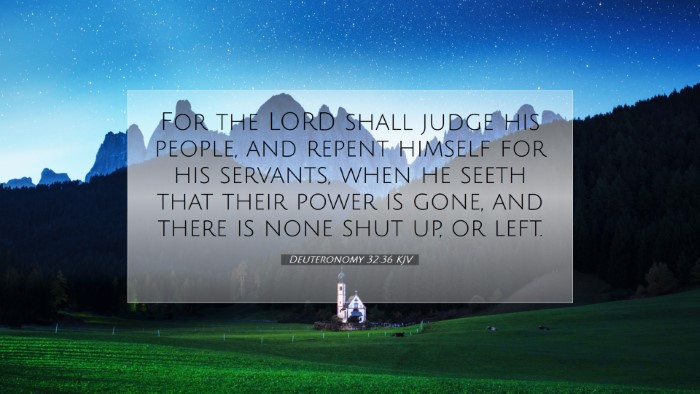Commentary on Deuteronomy 32:36
Verse Context: The verse under consideration reads: "For the LORD will judge His people and have compassion on His servants, when He sees that their power is gone, and there is none remaining, bond or free." In this verse, we observe a significant moment in the narrative of Israel's journey, particularly in the themes of divine justice and mercy.
Key Themes and Insights
- Divine Judgment:
This verse emphasizes God's role as a judge over His people. As noted in Matthew Henry's Commentary, judgment is not merely punitive but is aimed at correcting and restoring.{ }
- Compassionate Mercy:
Albert Barnes highlights that despite the inevitability of judgment, God's mercy is profound. When God sees His faithful servants at their lowest, He responds with compassion. This compassion serves as a reminder of the balance between justice and grace in God's character.{ }
- Human Frailty:
Adam Clarke observes the depiction of the human condition in this passage. The acknowledgment that "their power is gone" reflects the vulnerability of God's people, an essential theme throughout scripture that illustrates our complete dependence on God's strength and sustenance.
Theological Implications
The verse suggests that divine discipline is corrective rather than solely punitive. The nature of God as both a judge and a compassionate savior invites believers to consider their own spiritual states and the grace that is available to them at their times of need.
Judgment and Restoration
As Matthew Henry notes, God's judgment is motivated by a desire for restoration rather than mere punishment. The understanding that the Lord will "judge His people" suggests a process of purification aimed at bringing His followers back into a right relationship with Him.
Recognition of Powerlessness
In recognizing the powerlessness of His servants, God demonstrates His awareness of their struggles. The phrase "when He sees that their power is gone" reflects not only the acknowledgement of weakness but also serves as a profound moment when God intervenes. Barnes stresses that it is at the time of greatest despair that God manifests His compassion most vividly.
Practical Applications for Believers
- Hope in Desperation:
For pastors and laypeople alike, this verse offers hope. It reassures believers that God does not abandon them, especially when they feel defeated.
- Encouragement to Intercede:
This passage calls for intercessory prayer, urging the community to uphold one another during struggles, mirroring God's compassion.
- Understanding God's Character:
This verse encourages deep theological reflection on the duality of God's justice and mercy, challenging individuals to embody these characteristics within their own lives.
Historical Context
Deuteronomy is a passionate plea by Moses to the Israelites, encouraging fidelity to God. Understanding the historical backdrop of Israel's wandering and struggles enhances comprehension of God's commitment to His people, especially during moments of moral and physical weakness.
Israel's Journey
The Israelites, post-exodus and during their wilderness wanderings, faced continuous challenges and rebellions. This verse encapsulates the essence of their journey—a relationship characterized by recurring failure, yet accompanied by steadfast divine faithfulness.
Conclusion
Deuteronomy 32:36 stands as a profound reminder of God's dual roles as judge and redeemer. As emphasized by Clarke, understanding the depths of God's mercy in the context of human frailty challenges believers to view divine judgment through the lens of compassion. For theologians and Bible scholars, this verse encourages a deeper exploration of the intricate dynamics of divine justice, mercy, and the relational aspects of faith.


